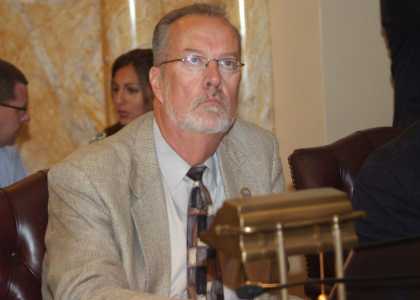
Bill Would Expand NJ’s Renewable Energy Industry, Put Closed Landfills to Good Use
TRENTON – A bill sponsored by Senator Jim Whelan which would permit the development of solar, photovoltaic and wind energy facilities on closed landfills or quarries was approved by the Senate today by a vote of 34-0.
“With the environmental crisis gripping the Gulf of Mexico in the wake of the massive BP oil spill, there’s more demand than ever for clean, renewable and sustainable forms of energy,” said Senator Whelan, D-Atlantic. “By opening up closed landfills for solar farms and wind energy facilities, we stand to make New Jersey a national leader in the clean energy industry. This bill is good news for the environment, and will result in new jobs and new economic activity for struggling communities throughout the State.”
The bill, S-2126, would provide that, notwithstanding any existing law, local ordinance or regulation, that the development of solar and photovoltaic energy facilities or structures on any closed landfill or quarry, or an existing or closed resource extraction operation, be a permitted land use in every municipality in the State, including areas preserved under the Pinelands Comprehensive Management Plan. Under the bill, the Pinelands Commission would be required to review any application for the development of a renewable energy facility on the site of a closed landfill or quarry, and determine that the development is in conformance with the applicable standards of the management plan. The bill was amended to include wind energy facilities as a permitted use in areas not already under the protection of the Pinelands management plan.
The development of a renewable energy facility would be prohibited from adversely impacting any existing engineering devices or environmental controls located on the site to facilitate site remediation, or any ecologically-sensitive areas located on, adjacent to, or within the same sub-watershed as the site proposed for development, except as may be approved by the Pinelands Commission, in consultation with the State Department of Environmental Protection.
“New Jersey’s communities – particularly in the Pinelands region – are facing chronic budgetary problems and are quickly using up any developable land in the race for new tax ratables,” said Senator Whelan, who as then-mayor of Atlantic City, attracted the Borgota resort – a billion dollar investment – to develop on top of a closed landfill. “If we can allow developers to use currently unusable landfill sites to produce cheap, clean energy, then that’s a win-win situation for these towns. Not only do we have to look for environmentally-friendly forms of development, but we have to look at the bottom line for towns which are quickly running out of options.”
Senator Whelan noted that there are nearly 80 unused landfills within the Pinelands preservation area, and of those 80, there are only two which have been capped. The other 78 landfills are sitting as unusable, undevelopable land.
“If we continue at the current rate of landfill remediation, it could take up to 300 years before every landfill in the Pinelands is restored to usable land,” said Senator Whelan. “We need economic solutions today to put people to work, and if we can promote an emerging, environmentally-friendly business model, that’s even better. At the end of the day, unless we give communities the ability to diversify their economies and encourage new local investment from cutting edge new industries, we’re going to be condemning homeowners to years and years of endless tax hikes.”
The bill was approved by the Senate Environment and Energy Committee by a vote of 4-0 in July.

